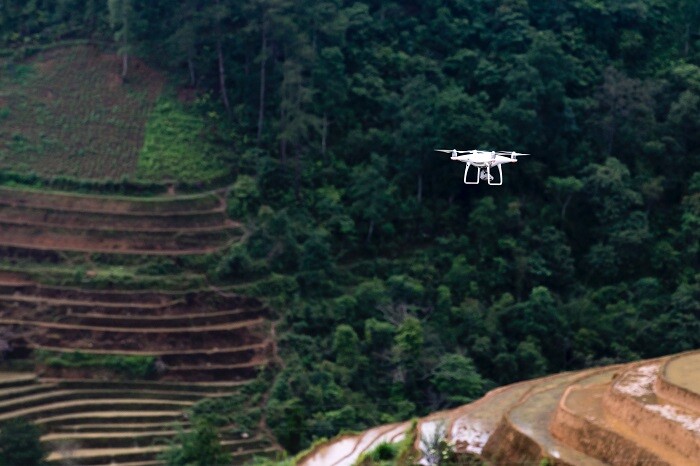This week’s “Around the Commercial Drone Industry” news round-up  looks at the impact the FAA reauthorization bill could have on the UAV and AAM sectors, the result of a contentious drone surveillance case in Michigan, and how a North Carolina vineyard has integrated drones into its operations.
looks at the impact the FAA reauthorization bill could have on the UAV and AAM sectors, the result of a contentious drone surveillance case in Michigan, and how a North Carolina vineyard has integrated drones into its operations.
FAA Reauthorization Has Large Implications of UAV and AAM Industries
Last week, the US Senate passed the Federal Aviation Administration reauthorization bill, extending the agency’s authorization for five years. The legislation, which now heads to the US House of Representatives for a vote, contains important provisions for the UAV and AAM industries.
According to a press release from the US Senate Committee on Commerce, Science & Transportation, the bill:
- Facilitates Commercial Use of Drones and Unmanned Aircraft: The bill directs the FAA to establish a pathway for beyond visual line-of-sight operations and create two additional test sites for companies to start using unmanned aircraft (UAS) for package delivery or other operations. The bill also gives the FAA enforcement authority to prohibit unauthorized or unsafe use of UAS.
- Extends the BEYOND program: The bill continues the BEYOND program, launched in 2020, for five years. Progress has been made under the Unmanned Aircraft Systems Integration Pilot Program which centers around developing standards, engaging communities and informing policies to facilitate the safe deployment and operation of drones.
- Supports Avenues to Safety Certification of Air Taxis: The bill supports pathways and additional certainty needed for the safety certification of advanced air mobility powered-lift aircraft, or “air taxis,” capable of vertical take-off and landing.
- Furthers UAS and AAM Research: The bill expands FAA research to safely integrate unmanned aircraft systems and advanced air mobility into the national airspace system, including making it easier for first responders to use drones for disaster response.
Government Prevails in Michigan Drone Surveillance Case
In a court case that has been closely watched by drone industry leaders, law enforcement officials, and civil liberties advocates, the Michigan Supreme Court ruled against a couple that had sued their community, Long Lake Township, for flying a drone “to take pictures of a rural salvage yard without permission.” According to an Insurance Journal report, “Todd and Heather Maxon had argued that the aerial photos violated their right to not have unreasonable searches. But the Supreme Court said the fight over excessive junk on the heavily wooded parcel was a civil action, not a criminal case, and that the so-called exclusionary rule doesn’t apply.” The news report detailed how “Liberal and conservative groups closely watched the case, even joining together to urge the court to throw out evidence collected by Long Lake Township.” Moreover, “The American Civil Liberties Union of Michigan, the Mackinac Center for Public Policy, the Cato Institute and the Rutherford Institute filed briefs on the side of the Maxons. The Michigan Townships Association and Michigan Municipal League backed the township.”
Drones Spray for Mold and Mildew on a North Carolina Vineyard
A news report from North Carolina details how Saint Paul Vineyards in Henderson County is using drones to spray fungicide as a more efficient and environmentally friendly way to kill mold and mildew. With spray drones, the report stated, the vineyard has reduced work time from two hours to ten minutes. Moreover, “The drones are able to target the areas more accurately, creating less overspray and saving resources.”















Comments